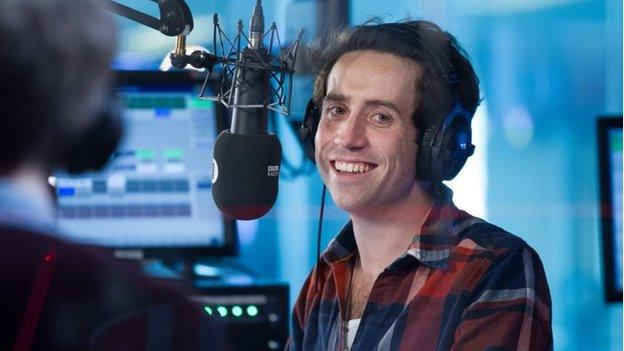Radio 1: Why is the station struggling to find new DJs?
- Published
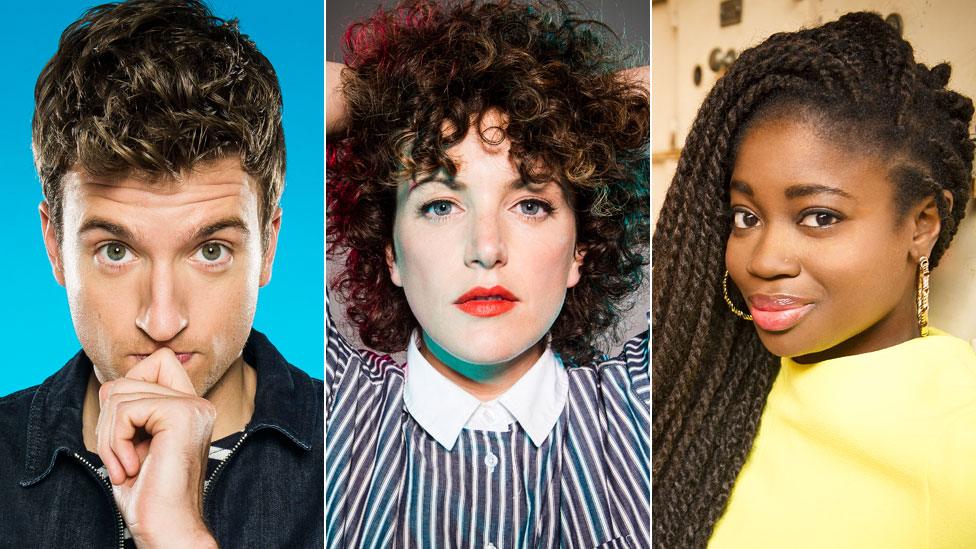
Left to right: Greg James, Annie Mac and Clara Amfo
BBC Radio 1 has a problem.
But it's not the playlist, its listening figures or social media following that controller Ben Cooper is concerned about - it's where the next generation of presenters is coming from.
"It's everyone's favourite game at Radio 1 to try and second guess me and come up with their fantasy schedule," he laughs as he speaks to the BBC on Wednesday morning.
Cooper is chatting to journalists as he unveils Radio 1 Vintage - a pop-up station which will broadcast old shows from across the decades as part of the station's 50th birthday celebrations in September.
He describes the new venture as a great way of celebrating Radio 1's history - but what about its future?
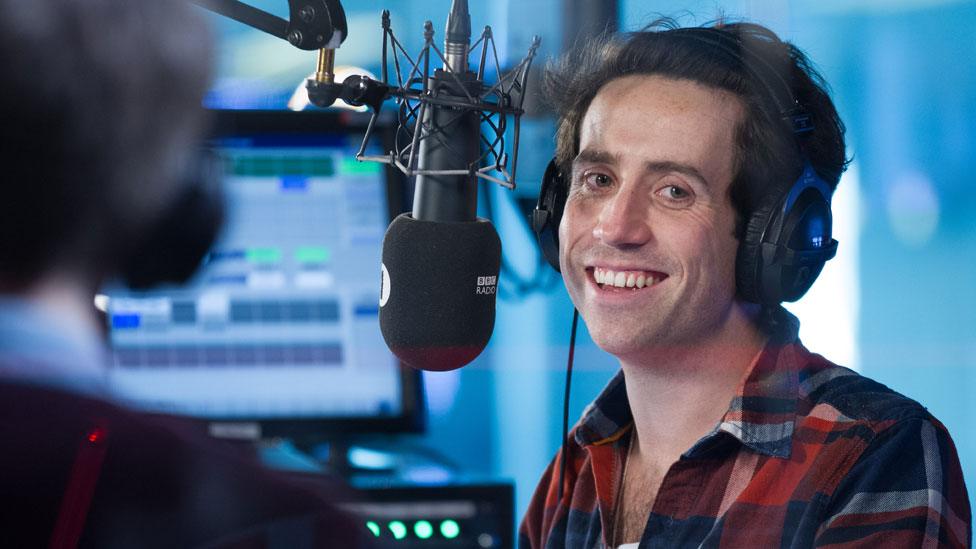
Nick Grimshaw has presented the Radio 1 breakfast show for nearly five years
"I'm not planning any schedule changes at the moment," he says, "but I'm always looking for fresh new talent, for the next set of presenters, but I think it's really weird how it's getting harder.
"It's getting harder because you don't have the likes of MTV presenters like Cat Deeley, Edith Bowman, Trevor Nelson or Zane Lowe.
"You don't have T4 with Vernon Kay and Dermot O'Leary. You don't have CD:UK or Top of the Pops. So it's really hard to find that next group of presenters that are coming up."
With fewer platforms and avenues for presenters to make a name for themselves, where could the next generation of radio presenters come from?

TV stars
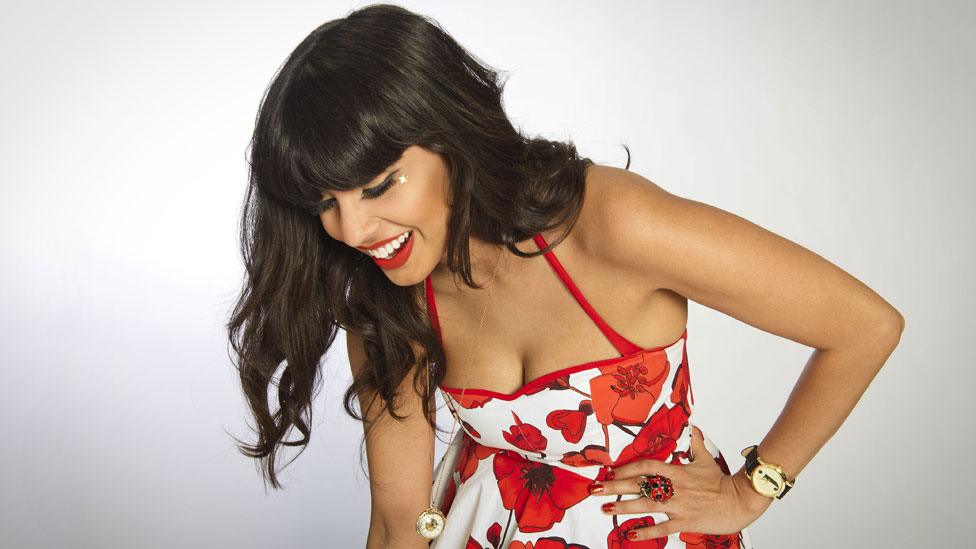
Jameela Jamil presented T4 before joining Radio 1 in 2012
In recent years, Radio 1's line-up has sometimes resembled a Sunday morning TV schedule.
Fearne Cotton, Nick Grimshaw, Jameela Jamil and many more were hired to present on the station after first cutting their teeth on TV.
But Cooper says the issue now with hiring from TV is the fundamental change in the type of personalities which fill our screens.
"With modern youth culture on television, you can't pick someone famous off the TV, because what you've got now is a lot of reality television, and people who are famous for a short burst of time," he explains.
"So it's really hard to find those next stars in the radio industry."
Saying that, Radio 1 has flirted with reality TV stars in the past - like when Kelly Osbourne was hired to present The Surgery.
But she lasted less than 18 months and the station has rarely done it since (although early breakfast host Adele Roberts was once a Big Brother contestant).

YouTubers
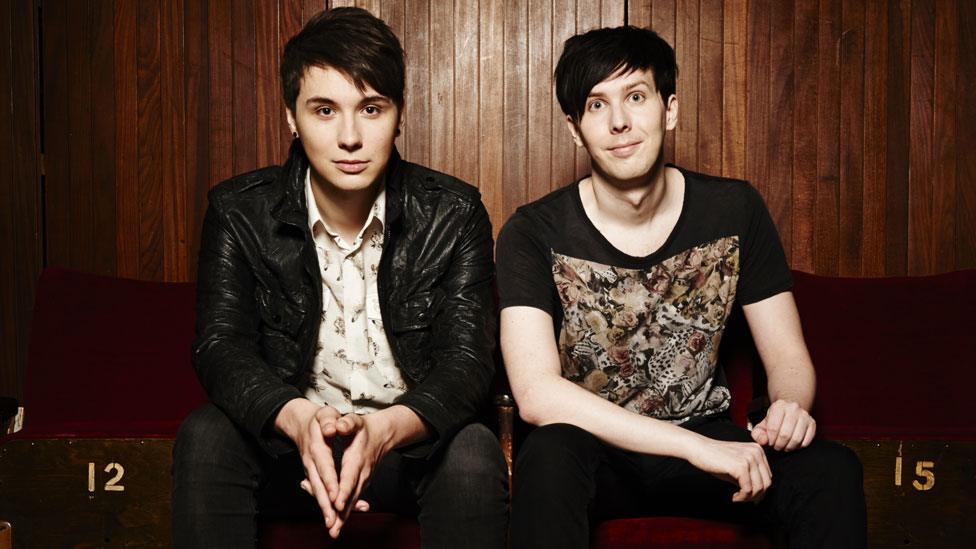
When Dan & Phil joined the station in 2012, listeners' reactions ranged from massive excitement to "Sorry, who?"
While Radio 1's older listeners might not have heard of vlogging, hiring YouTubers who have built up their own following online seemed like a logical next step for a station which is constantly chasing a young audience.
The show was popular, but the pair - otherwise known as Dan Howell and Phil Lester - left after four years.
Cooper says: "We've looked at YouTubers, people like Dan & Phil, but they get tempted by huge amounts of money and go off on world tours around America and Australia."
We may well see more vloggers hired to present on the station in the future, but it's likely the publicly-funded Radio 1 will struggle to compete with the money that YouTubers can make from lucrative merchandising and endorsement deals.

Commercial radio
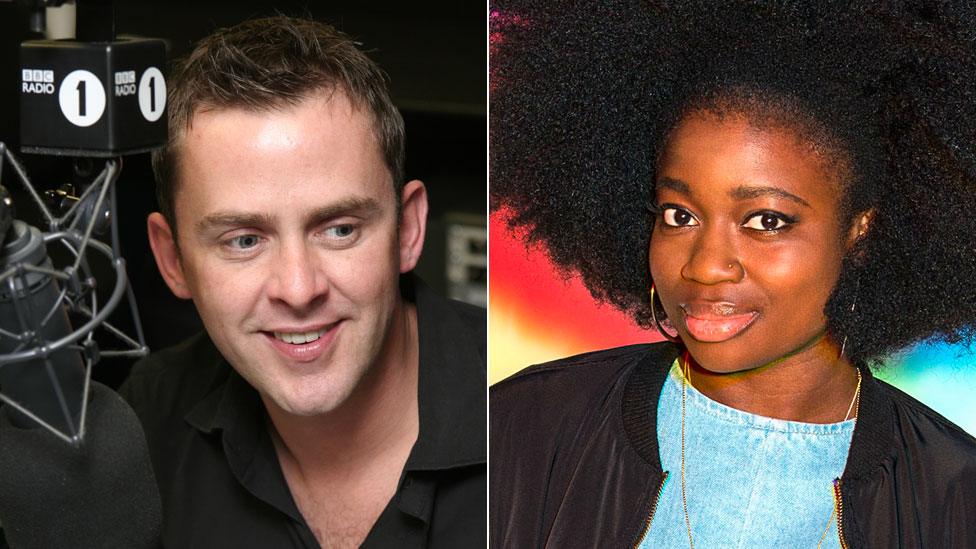
Scott Mills and Clara Amfo both previously worked in commercial radio
Twenty years ago, commercial radio was the natural place for BBC bosses to look for new talent, and vice versa.
Scott Mills, Chris Moyles and Tim Westwood were all poached from commercial stations in the 1990s, and similarly, many BBC figures have jumped ship into the world of commercial.
But in recent years, movement has slowed.
Radio 1 has been looking elsewhere for on-air talent, but simulcasting (where the same show is broadcast on multiple regional stations) has meant there are fewer presenting jobs in commercial radio.
However many presenters still swap sides - one of Radio 1's brightest new talents, Clara Amfo, previously presented on Kiss.

Student and community radio
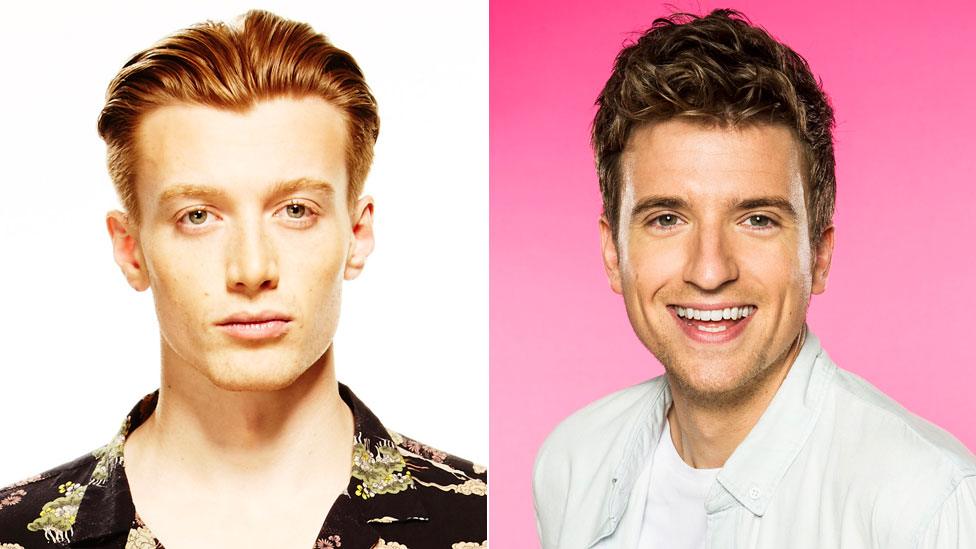
Both Jack Saunders and Greg James have student radio backgrounds
So with more and more avenues into radio closing, where exactly is the next generation of radio presenters coming from?
Cooper says the answer lies in student and community radio stations.
"We got Greg James from student radio - he's the sort of poster boy for it. He gets mobbed every time he goes to a conference," Cooper says.
"Student radio and community radio is the one place where you still see people passionate about getting into a room with a microphone and broadcasting to listeners. That's where I look for the next talent."
It's not just the BBC who has been looking at student stations for the next generation of big names.
To take just one commercial example, Radio X's presenters include Jack Saunders, Issy Panayis, Ross Buchanan and Michael Lavin - all of whom started on student stations.
For those considering a career in radio - signing up to your college or university station now may be the best way to go about it.

Follow us on Facebook, external, on Twitter @BBCNewsEnts, external, or on Instagram at bbcnewsents, external. If you have a story suggestion email entertainment.news@bbc.co.uk, external.
- Published29 June 2017
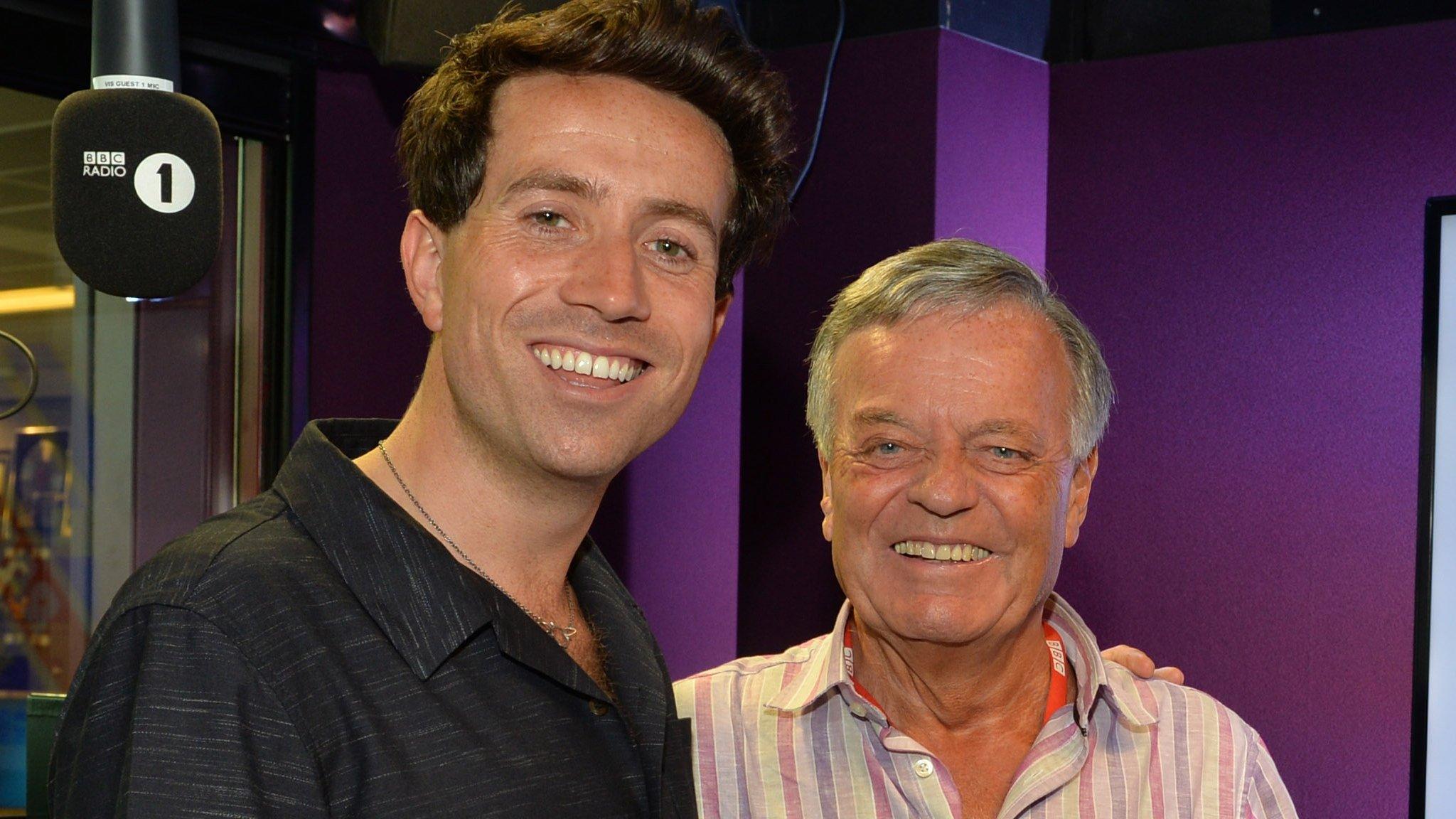
- Published21 April 2017
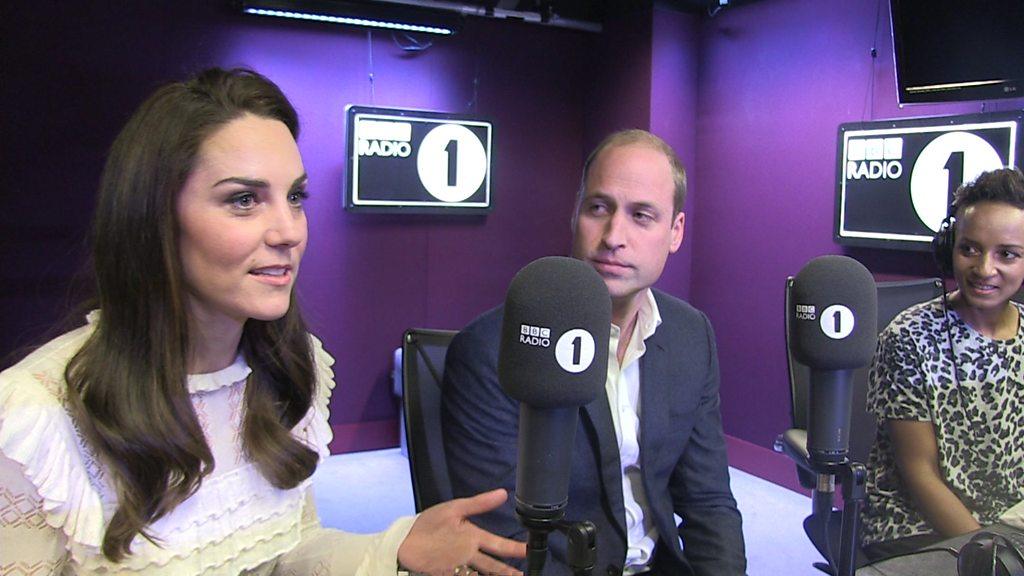
- Published4 August 2016
